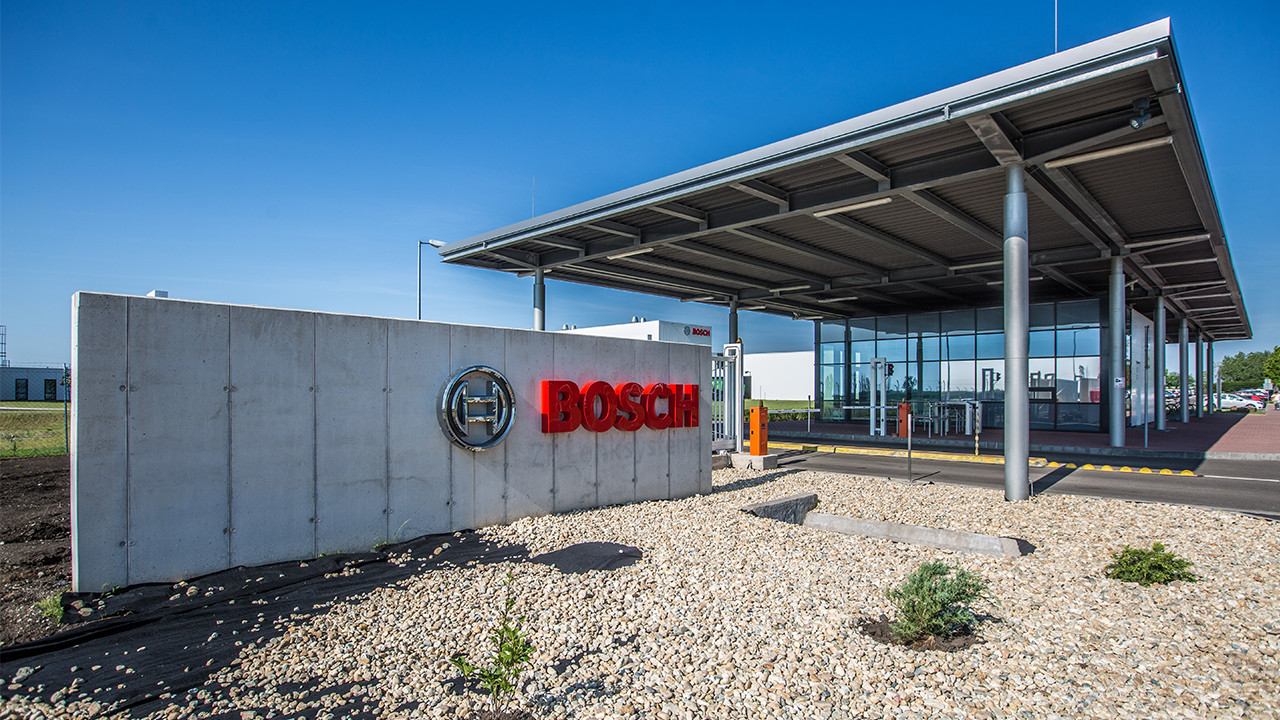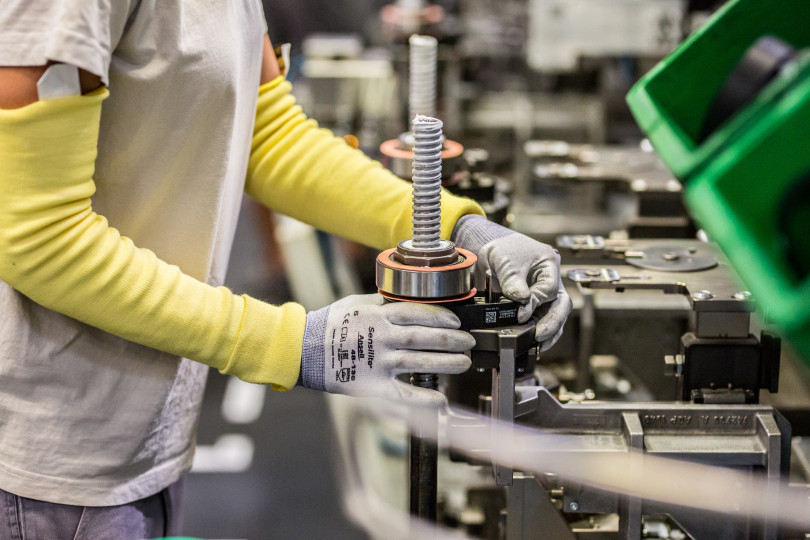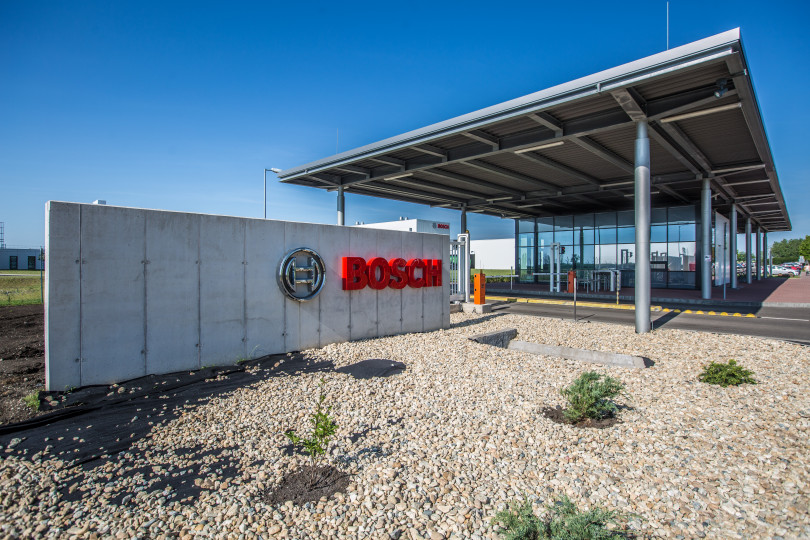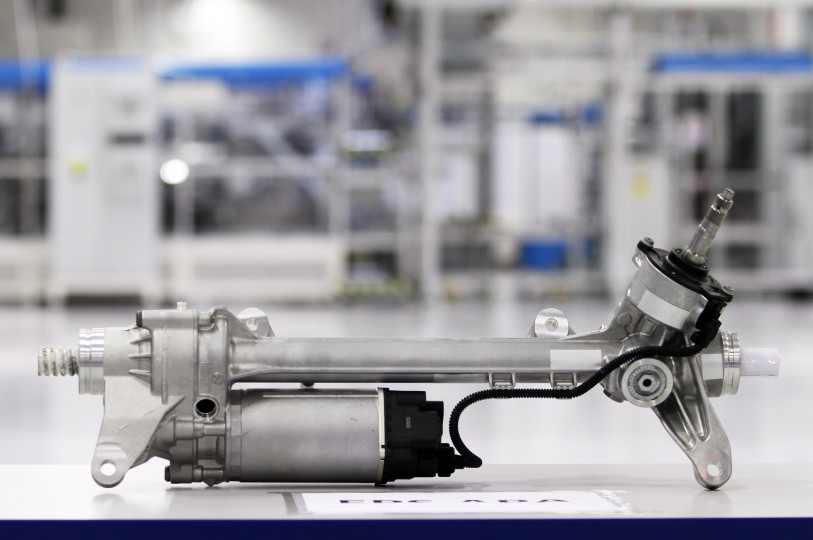Eger, Maklár – Robert Bosch Automotive Steering Kft. is celebrating 15 years of operation at its plants in Eger and Maklár. In that time, the company has built up its workforce from 35 to more than 1100, and now supplies parts to more than 100 auto makers in every part of the world. Stefan Basso, Commercial Plant Manager said on the occasion of the anniversary, “The company has been through many changes in these 15 years. The results and successes are above all down to sustained effort by my magnificent colleagues.”
Initial successes
15 years ago, in 2003, Robert Bosch GmbH és ZF Friedrichschafen set up a fifty-fifty joint venture in Eger under the name ZF Lenksysteme Hungária Kft. For the next ten years, the company was mainly engaged in assembly and reconditioning, with the addition of steering column manufacture in 2006. By 2009, it had produced its two millionth passenger-car steering column, and a year later, its millionth intermediate shaft for commercial vehicles.
Turning point: expansion to Maklár
In 2012, the Hungarian subsidiary extended its portfolio, with assembly of electric as well as hydraulic steering gear and manufacture of steering racks and nuts, a key competence. A new site to provide the expanded manufacturing capacity was built at Maklár, ten kilometres from Eger, in only 327 days. Since 2014, traditional hydraulic steering gear has been made in Eger and its electric counterpart in Maklár. The same year, Bosch announced it was to buy the whole ZF Lenksysteme Group, and the new company was registered in its present name in April 2015.
Fruitful years
Serial production of racks and nuts for electric steering systems started in the Maklár plant in May 2015. Today, steering gear is produced in the two plants at the rate of a million units a year, most of them of the most advanced, environmentally-friendly EPS type. Steering gear made in Eger and Maklár is now built into millions of vehicles plying the roads of the world.
Future belongs to autonomous cars
Bosch recognized early on that the market would move towards electric steering and the future belongs to autonomous cars. As the Technical Plant Manager, Paul Klinzing said “Bosch always thinks in the long term. The company is looking at a leading role in these areas, and we are proud that the Eger and Maklár plants are playing a major role in this.”
As part of its future-shaping ambitions, Bosch puts great effort into training and recruitment: it cooperates with Debrecen University and the Budapest Business School, by which it provides opportunities for degree projects and internships. In 2017, the company fitted out a vehicle technology laboratory in the Engineering Faculty of Debrecen University, for which it provides continuing support. In the dual training scheme, students gain practical experience of the operations, expectations and culture of a major modern company, knowledge that provides great advantages in seeking work after they graduate – possibly in Maklár.
Mónika Hack
+36 70 510 5516
Bosch has been present in Hungary since 1898 with its products. The company is this year celebrating the 100th anniversary of the opening of its first Hungarian operation. After its re-establishment as a regional trading company in 1991, Bosch has grown into one of Hungary’s largest foreign industrial employers with currently nine Hungarian subsidiaries. In fiscal 2017 it had a total turnover of HUF 1304 billion and sales of the Bosch Group on the Hungarian market – not counting trade among its own companies – was HUF 244 billion. The Bosch Group in Hungary employs roughly 13,500 people (as per January 1, 2018). In addition to its manufacturing, commercial and development business, Bosch has a network of sales and service operations that covers the entire country.
The Bosch Group is a leading global supplier of technology and services. It employs roughly 402,000 associates worldwide (as of December 31, 2017). The company generated sales of 78.1 billion euros in 2017. Its operations are divided into four business sectors: Mobility Solutions, Industrial Technology, Consumer Goods, and Energy and Building Technology. As a leading IoT company, Bosch offers innovative solutions for smart homes, smart cities, connected mobility, and connected manufacturing. It uses its expertise in sensor technology, software, and services, as well as its own IoT cloud, to offer its customers connected, cross-domain solutions from a single source. The Bosch Group’s strategic objective is to deliver innovations for a connected life. Bosch improves quality of life worldwide with products and services that are innovative and spark enthusiasm. In short, Bosch creates technology that is “Invented for life.” The Bosch Group comprises Robert Bosch GmbH and its roughly 440 subsidiary and regional companies in 60 countries. Including sales and service partners, Bosch’s global manufacturing, engineering, and sales network covers nearly every country in the world. The basis for the company’s future growth is its innovative strength. At 125 locations across the globe, Bosch employs some 64,500 associates in research and development.
Additional information is available online at www.bosch.hu, iot.boschblog.hu, www.bosch.com, www.iot.bosch.com, www.bosch-press.com, www.twitter.com/BoschPresse







